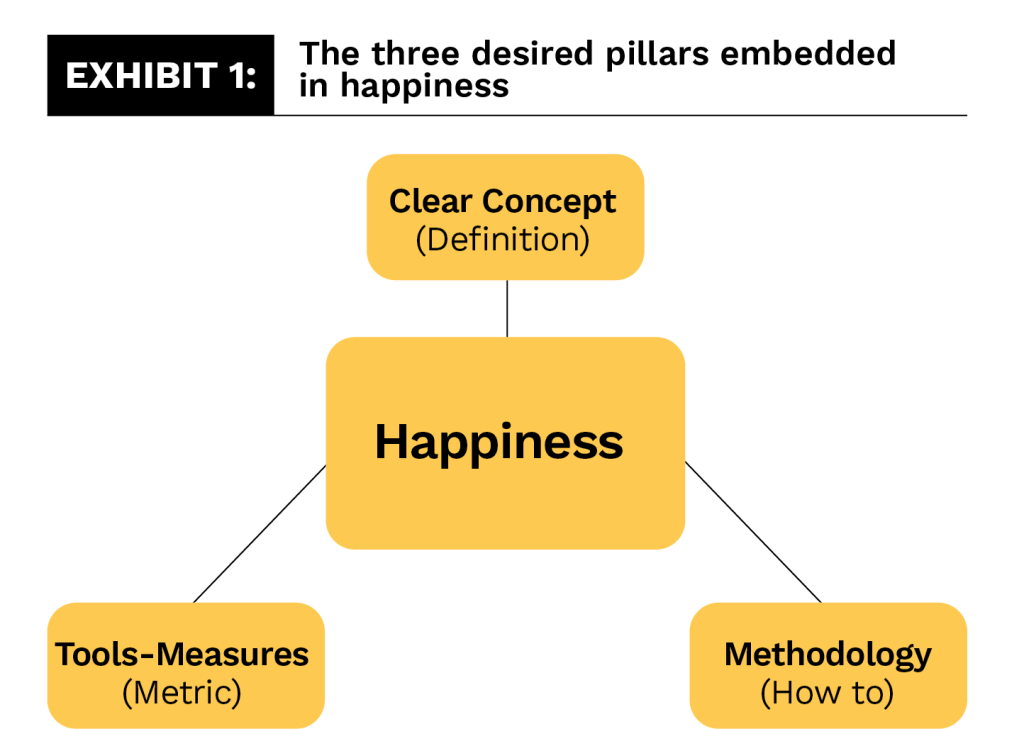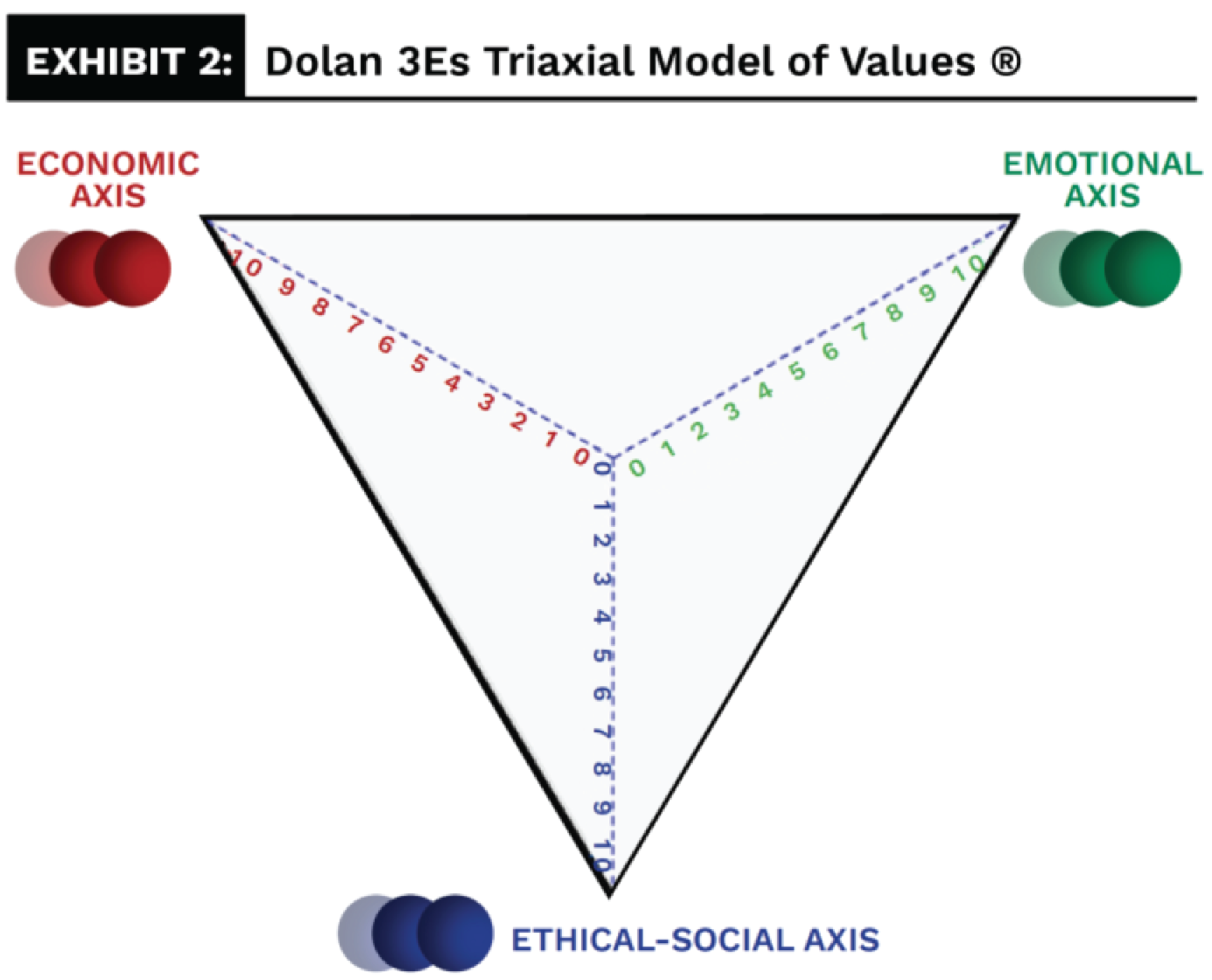By Simon L. Dolan (Alias Dr. Simon)
As the human need for constant happiness increases, it becomes commodified – as a goal to be achieved through external means – thereby perpetuating a culture of consumerism and materialism. This article analyses happiness as a culmination of living our truest values, allowing each individual to find their path to it.
The concept of happiness has become a buzzword in recent years, aiming to overcome all individuals’ misery, whether it is felt at home, at work, or in the community. After all, who does not want to be happy or to become happy? Happiness as a concept can be compared to the brightness and warmth of the sun. Do you know anyone who expresses negative feelings or attitudes against the sun? Happiness is often oversimplified as a state of being that is universally desirable and easily attainable. The comparison of happiness to the sun, with its connotations of brightness and warmth, serves to perpetuate this complex concept.
While it is commonly believed that happiness is a panacea, a closer examination reveals this notion to be oversimplified and potentially dangerous. Happiness, often portrayed as the ultimate goal and solution to all of life’s problems, is mistakenly equated with an absence of suffering or difficulty. This idealisation of happiness as a cure-all ignores the complexities of human emotions and experiences.
The pursuit of happiness as a cure-all can lead to unrealistic expectations and a constant striving for an unattainable state of being. The pressure to always maintain a facade of happiness can be detrimental to mental health, as it discourages individuals from acknowledging and processing negative emotions. This can result in a suppression of authentic feelings and a disconnection from one’s true self.
Furthermore, the belief that happiness is a magic bullet can perpetuate a culture of toxic positivity, where individuals are expected to always remain upbeat and optimistic, regardless of their circumstances. This can invalidate the very real struggles and challenges that people face, making it difficult for them to seek support or address underlying issues.
Additionally, the pursuit of happiness as a panacea can overlook the importance of a range of emotions in personal growth and resilience.1 It is through facing and overcoming adversity, and experiencing sadness and pain, that individuals can develop strength, empathy, and a deeper appreciation for life’s complexities. By only valuing happiness, we limit our capacity for emotional growth and self-understanding.
The concept of happiness has undeniably become a lucrative industry for consultants, self-help gurus, and lifestyle brands seeking to capitalise on society’s perpetual pursuit of contentment. The commodification of happiness has transformed what was once a deeply personal and subjective emotion into a marketable product, packaged and sold to the masses under the guise of self-improvement and fulfilment.2
Consultants peddle their services, promising to unlock the secrets to lasting happiness, offering workshops, seminars, and coaching sessions that often come with a hefty price tag. These individuals position themselves as experts in the field of happiness, claiming to possess the knowledge and techniques necessary to guide others towards a more fulfilling life. However, the very act of monetising happiness undermines its intrinsic value, reducing it to a mere commodity that can be bought and sold like any other product.
Millennials, the generation born roughly between 1981 and 1996, far outpace the other generations with their salary desires. Their desired salary is more than triple that of Gen X, which had the next highest salary needs of any group. Millennials are also at the prime age for several major financial decisions, such as purchasing a home and having children, which could be related to their relatively higher salary demands for financial happiness. Respondents defined happiness in a variety of ways, including paying bills on time, living debt-free, affording everyday luxuries without worry and owning a home. “Millennials are the generation of those who encountered the harsh reality of the American Dream myth.”
Moreover, the relentless promotion of happiness as a goal to be achieved through external means perpetuates a culture of consumerism and materialism, suggesting that true contentment can be attained through the acquisition of material possessions or the pursuit of superficial pleasures. This narrow and superficial interpretation of happiness fails to acknowledge the complexities of human emotions and experiences, reducing a deeply personal and nuanced sentiment to a one-size-fits-all formula for success.
The industry of happiness consultants thrives on the insecurities and vulnerabilities of individuals who are constantly bombarded with messages that suggest they are not good enough or happy enough. By perpetuating the myth that happiness can be bought and sold, consultants exploit the very real and valid struggles that people face in their daily lives, offering false promises of a quick, fixed solution to all their problems.
In other words, the commodification of happiness by consultants and self-help gurus represents a troubling trend that devalues the true essence of happiness as a deeply personal and subjective emotion. Rather than seeking external validation or quick fixes, individuals should prioritise self-reflection, introspection, and genuine human connection as the keys to true contentment and fulfilment. Happiness cannot be bought or sold – it is a state of being that must be cultivated from within, free from the constraints of consumerism and commercialisation.
While happiness is undoubtedly important for overall well-being, it is not a panacea.3 Embracing a full range of emotions, including sadness, anger, and frustration, is essential for a truly fulfilling and authentic life. By acknowledging and accepting the complexities of human experience, we can cultivate a more balanced and resilient approach to navigating the ups and downs of life.
To enhance the professional selling of happiness, it should never be sold as a heal-all, and the concept should be accompanied with three complementary pillars:
- Clearly defining the concept so that everyone can understand, and prevent false expectations.
- Clearly develop a valid and reliable methodology of how to apply the concept to individuals, teams, or nations.
- And clearly refine a metric and tools to measure happiness. A concept without a valid scientific metric is not useful.

Happiness approached from the angle of values
When we embarked on the voyage into the world of values, we faced the same dilemma. We knew that values represent the DNA of our behaviour; that shared values represent the norm and the culture of a unit, a community, or a larger society; and that the universe of values includes thousands of them, and they all seem to be important to some people. We also took extra care to ensure those values did not become another fashion or a panacea. Therefore, we have dedicated over 40 years to research in studying values, and have eventually developed the three pillars that convert it into what we call “Values in Action”: A concept, a methodology, and a tool(s).
All that is easier to say than do. So let´s reduce this complexity to something simple and doable. Our experience suggests that getting to really understand your core values can get you on the road to experiencing more moments of happiness in your life. We call this philosophy: “Values in Action”.
Values are intricately connected to moments of happiness, forming the very core of an individual’s sense of fulfilment and contentment. This relationship between values and happiness is a nuanced and complex one, requiring a deep understanding of the interplay between personal beliefs, societal norms, and individual experiences.
At the heart of this connection lies the idea that values act as guiding principles that shape our thoughts, actions, and decisions. They serve as a moral, economic, and emotional compass, directing us towards what we believe to be important in life. When our actions align with our values, we experience a sense of authenticity and integrity that brings about a profound sense of satisfaction and joy.
Furthermore, moments of happiness are often closely tied to the fulfilment of our values. When we can live by what we hold dear, whether it be honesty, compassion, or achievement, we are more likely to experience a deep sense of contentment and well-being. This alignment between values and actions creates a sense of harmony and purpose that is essential for sustained happiness.
However, the relationship between values and happiness is not always straightforward. In a society that often places emphasis on external markers of success and happiness, individuals may struggle to stay true to their values in the face of societal pressures. This can lead to a sense of inner conflict and dissatisfaction as individuals grapple with the tension between societal expectations and their own deeply held beliefs.
Ultimately, the connection between values and happiness is a deeply personal and individualised one. It requires self-reflection, introspection, and a willingness to prioritise what truly matters to us as individuals. By cultivating a strong sense of self-awareness and staying true to our values, we can create a life that is rich in meaning and fulfilment, leading to moments of true and perhaps happiness.
Over the years, we have researched, tested, and developed methodologies and tools that can help everybody understand his/her core values and examine if they really live up to them in their daily life (work, family, leisure). In addition, we have developed sophisticated training content and corresponding methodologies and tools (both manual and digital tools) that help people get there. Our three-dimensional model has been labelled Dolan 3Es Triaxial Model of Values and is depicted in Exhibit 2.

The misguided notion that the values axis is synonymous with dimensions is a flawed interpretation that undermines the complexity and nuance of the universe of core values. Our research shows that a reductionist perspective oversimplifies the intricate interplay of values and fails to acknowledge the inherent subjectivity and contextuality of core values that, for real decision-making (i.e. action), are limited and placed in a hierarchy. Here is a metaphor we often use to explain how people develop an algorithm for their values selection. Imagine you are hungry and enter a restaurant that offers a rich, free, buffet-style menu. Although you are hungry, you know you cannot eat everything. Thus, you pick and choose based on your criteria (for example, a combination of products that you consider healthy for you but will satisfy your taste and satisfy your level of hunger). The same applies to the world of values. We do not act based on all the values in the universe but rather pick and choose selected core values, place them in a relative hierarchy (to minimise conflicts between them) and ensure these are aligned with your definition of success. Our research shows that when this process occurs, people have a period of contentment, making them happier and more productive.

Although living your core values is often touted as a pathway to happiness, this is by no means a magic solution, but the idea that adhering to one’s core values will invariably lead to a fulfilling and contented life. We know that living by one’s core values may indeed contribute to a sense of purpose and integrity; it is also an important path to what we understand is happiness. Human existence is marked by nuance, ambiguity, and contradiction, and the pursuit of happiness is a dynamic and ongoing process that cannot be reduced to a set of static principles. Thus, we prefer to talk about moments (or periods of happiness) that can be achieved in living our core values. While we realise that the latter needs to be tuned up from time to time, we also acknowledge that the concept of happiness requires a holistic and nuanced approach that considers the complexity of human nature and the multitude of factors that shape our well-being.
The good news is that we have developed the methodology and tools that help people discover (or identify) their core values, measure them, place them in a hierarchy and ensure, through a coaching approach, that they live their values. We have been training coaches to help people understand what is really important to them and how to ensure alignment with their goals (Coaching by Values)4; we have been training managers to understand their managing philosophy and be more effective in developing shared values (which is our definition of culture) that are aligned with the corporate objectives (Managing by Values)5; and, we help leaders positively impact their followers in leading them into Tomorrowland (Leadership by Values)6.

Conclusion
While happiness is often portrayed as the ultimate goal in life, it is important to recognise that it is not a cure-all solution to the complexities and challenges we face. Pursuing happiness as a panacea can lead to overlooking the importance of experiencing a full range of emotions and addressing underlying issues that contribute to our overall well-being.
Living our core values, by contrast, is essential for achieving true happiness in life, as it allows us to remain authentic and aligned with our beliefs and principles, leading to a sense of fulfilment and contentment that cannot be achieved through superficial pursuits or fleeting pleasures. Only by staying true to ourselves and upholding our core values can we find lasting joy and inner peace in a world filled with distractions and temptations that seek to divert us from our true path. So, let us hold steadfast to our values and let them guide us towards a more meaningful and happier existence.
About the Author
 Dr. Simon L. Dolan is currently a professor at Advantere School of Management (Madrid) and the Pontifical University of Comillas. He is also a member of the Talent and Organizational Leadership research team at Deusto University. He was a former professor at ESADE, the University of Montreal, McGill University, Boston University, and others. He has published over 85 books, including academic textbooks published by global companies such as Pearson, McGraw-Hill, Thomson, and others, as well as digital books at MyEducator. He is the co-founder and president of the Global Future of Work Foundation (www.globalfutureofwork.com). He is the recipient of the 2024 “Doctorate Honoris Causa” (University of Huelva -Spain) and the International Federation of Scholarly Associations of Management (IFSAM) Award for Excellence in Societally Relevant Management Scholarship. For a detailed CV, visit: (www.simondolan.com).
Dr. Simon L. Dolan is currently a professor at Advantere School of Management (Madrid) and the Pontifical University of Comillas. He is also a member of the Talent and Organizational Leadership research team at Deusto University. He was a former professor at ESADE, the University of Montreal, McGill University, Boston University, and others. He has published over 85 books, including academic textbooks published by global companies such as Pearson, McGraw-Hill, Thomson, and others, as well as digital books at MyEducator. He is the co-founder and president of the Global Future of Work Foundation (www.globalfutureofwork.com). He is the recipient of the 2024 “Doctorate Honoris Causa” (University of Huelva -Spain) and the International Federation of Scholarly Associations of Management (IFSAM) Award for Excellence in Societally Relevant Management Scholarship. For a detailed CV, visit: (www.simondolan.com).
References
- Simon L. Dolan, Javier de Pablo (2023): Los Secretos de la Resiliencia (Profit Editorial)
- See: Wiliam Davies (2019) The Happiness Industry: How Government and Big Business Sold Us Well-Being
- Only a few and numbered scholars approach happiness from a scientific and serious angle. One of these is Prof. Tal Ben-Shahar from Harvard University. see: The Science of Happiness https://www.happinessstudies.academy/
- L. Dolan (2011) Coaching by Values: How to succeed in the life of business and the business of life. iUniverse.
- Simon L. Dolan, Salvador Garcia, and Bonnie Richley (2006) Managing by Values: a corporate guide to living, being alive and making a living in the 21st century (Palgrave MacMillan).
- Simon L. Dolan (2020) The Secret of Coaching and Leading by Values: How to ensure alignment and proper realignment (Routledge).




































